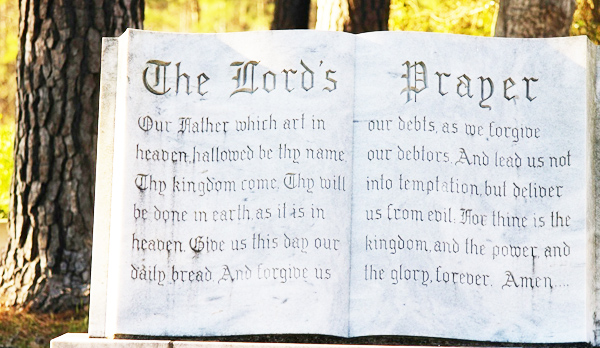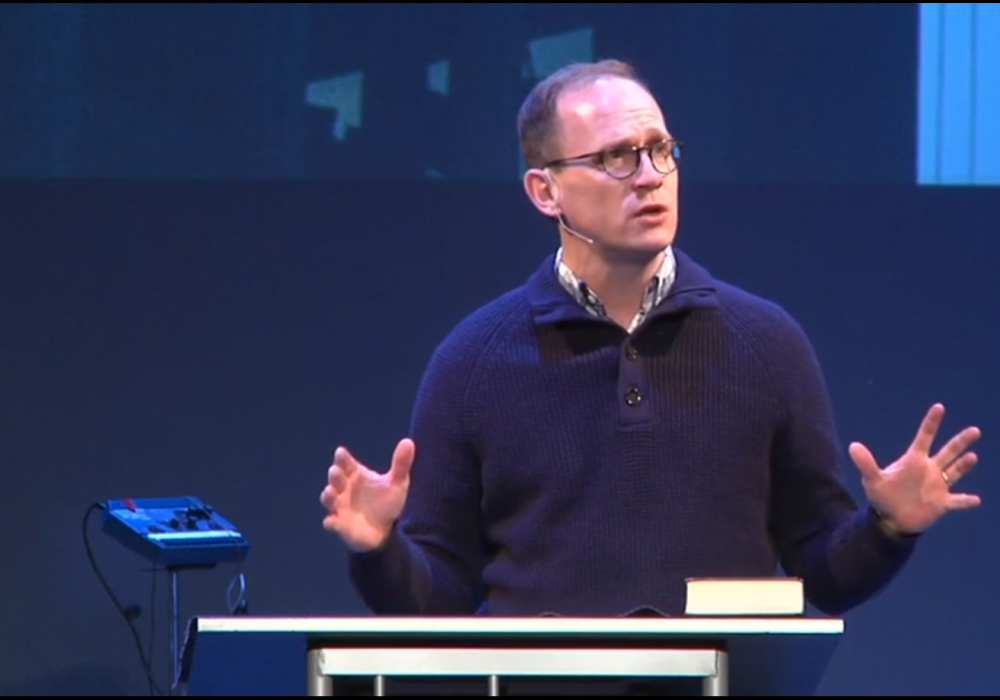I am the door. If anyone enters by me, he will be saved and will go in and out and find pasture (John 10:9). It is easy and common to skip over this reference of Jesus to himself as the door and jump straight to him as the shepherd (also in this passage in John 10). But pause and consider that Jesus says he is not only the shepherd of his sheep but he is also the door. In other words, Jesus is not only the shepherd of the sheep, but he is also the way through which he leads
Jesus
Location, Location, Location
There is therefore now no condemnation for those who are in Christ Jesus (Romans 8:1). There is a well-known real estate maxim that lists the three most important characteristics of any property: “Location, location, and location.” This famous real estate maxim holds true in the Bible, as well. In the Old Testament in particular leaving Israel is seen as departing from God, and returning to Israel represents one’s returning to God.
Crushed For Our Iniquities
He was pierced for our transgressions; he was crushed for our iniquities; upon him was the chastisement that brought us peace, and with his wounds we are healed (Isaiah 53:5). At the heart of the gospel — at the heart of what happened on the cross to Jesus Christ — is substitution. It is Jesus taking the place, and therefore the punishment, of sinners who deserved God’s wrath. At the cross, Jesus got what we deserved. Isaiah 53:5 gives us this clear insight into Jesus’ death.
Lead Us Not Into Temptation
Lead us not into temptation (Luke 11:4). (Today’s is the last in a brief series of meditations on the Lord’s Prayer.) James says no one can say God has tempted him; this request, then, is for God to keep us from situations where we might fall. It is a recognition of the dangerous, bait-riddled, sin-inducing nature of this world. If love of money doesn’t get us, perhaps the temptation to fit in with the crowd will.
Forgive Our Sins
Forgive us our sins (Luke 11:4). (We are continuing in our brief series of meditations on the Lord’s Prayer.) Jesus teaches us to pray daily (see previous post) for the forgiveness of our sins, assuming (as we ought to) that we have strayed from the mark each day. Sins are sins — they are not merely mistakes, flaws, personality, or “my truth versus your truth.” And every sin is against God ultimately, and so must be dealt with before God (Psalm 51:4)
Give Us Our Daily Bread
Give us each day our daily bread (Luke 11:3). (We continue today in our brief series on the Lord’s Prayer.) The opening requests that Jesus models for us are about God — so like God they are majestic, huge, and inspiring. A lesson Jesus clearly means for us to learn in this prayer is that God comes first, and only when God is first does everything else matter or fall into place. However, the following pleas that Jesus himself places in our mouth are about us — and like us they are daily, mundane, unspectacular.
Your Kingdom Come
Your kingdom come (Luke 11:2). In my last post I began a series of brief meditations on the Lord’s Prayer. The prayer begins with the request for God’s name to be hallowed, followed immediately with the prayer for his kingdom to come. When we ask for God’s kingdom to come, we are reminded that not only is God’s name and glory to come first — but also God’s desires, his will, his purposes, and his authority.
Hallowed Be Your Name
When you pray, say: “Father, hallowed be your name” (Luke 11:2). It is doubtless true that the Lord’s Prayer is routinely abused around the globe every day, mouthed by people who neither think about its meaning, nor would mean it even if they did. This is why Martin Luther referred to the Lord’s Prayer as “the greatest martyr on earth.” It is, as it were, butchered by thoughtless, soulless prayer on a daily basis. However, the other extreme, into which many evangelicals today have fallen (and it’s just as bad) is this: we have largely neglected it!
You Are With Me
The psalmist famously writes: “Even though I walk through the valley of the shadow of death, I will fear no evil, for you are with me; your rod and your staff, they comfort me” (Psalm 23:4). Francis Schaeffer, in his book The God Who Is There, references a tragic poem found with the body of a 23-year old young woman and drug addict who had committed suicide. The note read:
FAQ: Why Is Jesus’ Birth So Important?
This series of brief videos offers bite-sized, meaningful answers to commonly asked questions. We hope they will be a help to you! Please also share them freely. If you would like to submit a question of your own, please note the contact info at the conclusion of the video. We look forward to hearing from you!
Living In Light of the Gospel
You then, my child, be strengthened by the grace that is in Christ Jesus (2 Timothy 2:1). With these words, the Apostle Paul challenges his young protégé, Timothy, not to grow weary or weak as he endures for the sake of the gospel and the church in Ephesus. The church at this time was experiencing heavy persecution from the Ephesian culture around it, which had little interest in the gospel. But the church was also facing pressure from inside in the form of false teachers. The church, and Timothy, was pressed on all sides.










